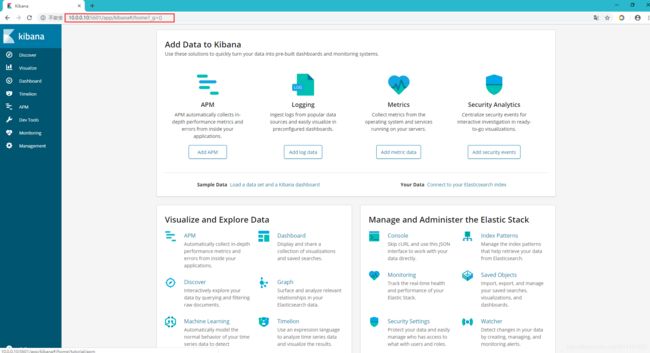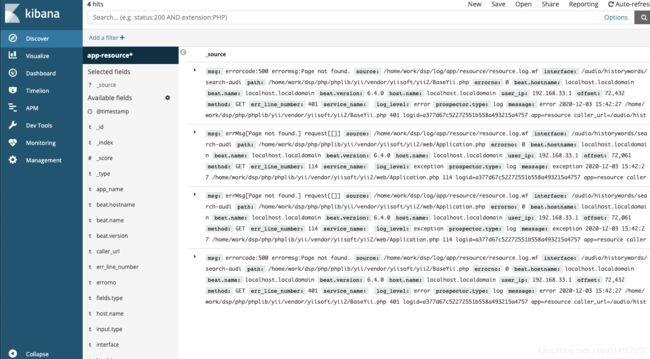- Three.js 实现导出模型文件(.glb,.gltf)功能 GLTFExporter
Three.js提供了导出(.glb,.gltf)文件的APIGLTFExporter用于实现场景内容导出模型文件的功能导出模型文件主要使用parse方法,该方法接收三个参数:1.scene:要导出的场景对象。2.onComplete:解析完成后的回调函数,接收一个参数result,表示解析后的glTF数据。3.options:可选参数,用于配置导出的选项。下面是options的一些常用参数选项:
- ECR仓库CloudFormation模板完整指南
ivwdcwso
运维与云原生自动化aws运维ECRCloudFormation镜像容器
概述本文档详细介绍了一个通用的AmazonECR(ElasticContainerRegistry)仓库CloudFormation模板,该模板支持多业务组、参数化配置,并包含完整的安全策略、生命周期管理和监控功能。模板特性核心功能✅支持4个业务组:app、ai、mall、frontend✅灵活的服务名手动输入✅多环境支持(dev/test/staging/prod)✅自动镜像扫描和安全检查✅生命
- [晕事]今天做了件晕事83: pen test
mzhan017
英语学习笔记晕事英语学习
这个缩写,就不能顾名思义了,而且pen是一个独立的单词,从读音上来说还容易和pain混淆,所以导致初接触者有些困扰。所以这个pentest的缩写,有些失败。全写是penetrationtest:渗透测试。https://en.wikipedia.org/wiki/Penetration_test修改建议是改成penetest,至少可以和pen在书写上区分,在读音是也可以区分,就读“排你test”。
- Tamd Status Pages统一样式状态页模板库
https://github.com/alonehill/tamd-status-pageshttps://gitee.com/alonehill/tamd-status-pageshttps://github.com/alonehill/tamd-status-pages
- IDEA Maven报错 无法解析 com.taobao:parent:pom:1.0.1【100%解决 此类型问题】
Dolphin_Home
私有_案例分析生产环境_场景抽象Debugintellij-ideamavenjava
IDEAMaven报错无法解析com.taobao:parent:pom:1.0.1【100%解决此类型问题】报错日志PSD:\Learn_Materials\IDEA_WorkSpace\Demo\spring_test_demo>mvncleaninstall-U[INFO]Scanningforprojects...[WARNING][WARNING]Someproblemswereenco
- PHP安全编程实践系列(三):安全会话管理与防护策略
软考和人工智能学堂
php#php程序设计经验php安全开发语言
前言会话管理是Web应用安全的核心环节,不安全的会话实现可能导致用户账户被劫持、敏感数据泄露等严重后果。本文将深入探讨PHP中的会话安全机制,分析常见会话攻击手段,并提供全面的防护策略和实践方案。一、会话安全基础1.1PHP会话机制工作原理理论:PHP会话是通过会话ID(SessionID)在服务器和客户端之间维持状态的一种机制。关键流程包括:会话初始化:session_start()调用会话ID
- python 异步编程:协程与 asyncio
花_城
Python开发语言后端异步协程
文章目录一、协程(coroutine)1.1协程的概念1.2实现协程的方式二、asyncio异步编程2.1事件循环2.2快速上手2.3运行协程2.4await关键字2.5可等待对象2.5.1协程2.5.2任务(Task)2.5.3asyncio.Future三、concurrent.futures.Future(补充)3.1爬虫案例(asyncio+不支持异步的模块)四、asyncio异步迭代器五
- Three.js实现海洋与天空
Three.js实现海洋与天空https://threehub.cn/#/codeMirror?navigation=ThreeJS&classify=shader&id=waterSkyimport*asTHREEfrom"three";import{OrbitControls}from'three/examples/jsm/controls/OrbitControls.js'constDOM=
- Python面试题:Python中的异步编程:详细讲解asyncio库的使用
超哥同学
Python系列python开发语言面试编程
Python的异步编程是实现高效并发处理的一种方法,它使得程序能够在等待I/O操作时继续执行其他任务。在Python中,asyncio库是实现异步编程的主要工具。asyncio提供了一种机制来编写可以在单线程内并发执行的代码,适用于I/O密集型任务。以下是对asyncio库的详细讲解,包括基本概念、用法、示例以及注意事项。1.基本概念1.1协程(Coroutines)协程是一个特殊的函数,它可以被
- jenkins 自动化部署之后,不允许在工具上查看源代码
小疯仔
jenkins自动化运维
先来展示一下最终的效果在没有如何操作之前的时候,这个Jenkins部署完成之后会在工具上留有源代码,能点击进去,部署到甲方的服务器上的时候会被看到,这样就会造成源码泄露解决方案可以在Jenkinsfile文件中加入以下代码pipeline{agentanytools{nodejs'nodejs16.20.2'}//步骤stages{}//新增post阶段:在流水线结束后清理工作区post{alwa
- CASP 或将停办!蛋白质结构预测风向标大赛因 NIH 断供而前途未卜
hyperai
一项名为「蛋白质结构预测关键评估(CriticalAssessmentofproteinStructurePrediction)」的竞赛面临停办风险——正是那个AlphaFold亮剑夺魁的行业风向标大赛CASP。美东时间7月2日,Science发布独家报道称,美国国家卫生研究院(NIH)对CASP的资助已经消耗殆尽,而负责管理项目经费的加州大学戴维斯分校(UCDavis)虽然提供了紧急支持,但也将
- Unity中的动画过渡
数据猴赛雷
Unityunity游戏引擎
1、动画过渡概况动画过渡允许状态机从一个动画状态切换或混合到另一动画状态。过渡不仅定义状态之间的混合应该耗费多长时间,而且还定义它们应该在什么条件下激活。您可以设置仅在特定条件成立时才发生过渡。要设置这些条件,请在AnimatorController中指定参数值。例如,您的角色可能具有“巡逻”状态和“睡眠”状态。您可以将巡逻和睡眠之间的过渡设置为仅在“alertness”参数值低于某个水平时才会发
- 为什么真正理解 HashMap 的使用场景,能让你代码效率翻倍?(不止于原理!)
你是否曾写过这样的代码:为了找一个用户信息,遍历了整个用户列表?或者在需要快速存取配置项时,却纠结于该用List还是Properties?如果你还在为“如何高效存储和查找键值对”而烦恼,那么HashMap就是那把被你忽视的瑞士军刀。但仅仅知道HashMap的原理是远远不够的,选错场景,它甚至会成为内存泄漏的元凶。一、痛点直击:为什么你需要HashMap?不仅仅是“快”想象一下这些让你抓狂的场景:用
- #TypeScript高频面试题总结(2025版)
沈大大520
typescript前端面试
本文将分享TypeScript高频面试题的一些面试点以及相应的示列作者:沈大大更新时间:2025-03-11前言TypeScript作为JavaScript的超集,已经成为前端开发中不可或缺的技术。本文整理了最常见的TypeScript面试题,从基础到高级,帮助你全面准备技术面试。基础概念篇1.TypeScript与JavaScript的区别是什么?TypeScript是JavaScript的超集
- Python 通过IP地址查询地理位置
文章目录Python通过IP地址查询地理位置一、在线API查询(简单快速,依赖网络)1.**使用`requests`+ipinfo.io**2.**使用`requests`+ip-api.com**二、本地数据库查询(离线高效,需下载数据库)1.**使用`geoip2`+GeoLite2数据库**2.**其他本地库对比**️三、结果可视化(增强展示)使用`folium`生成交互地图⚖️四、方法选择
- 如何解决微信小程序出现两个下拉刷新样式?
weixin_42220130
uniapp微信小程序微信小程序小程序下拉刷新样式重复
在微信小程序中,如果出现两个下拉刷新的情况,可能是因为在多个地方启用了下拉刷新功能,或者在同一个页面中多次调用了下拉刷新的API。以下是一些可能的原因和解决方法:多次调用下拉刷新API:确保在页面的生命周期中只调用一次wx.startPullDownRefresh()方法。在onPullDownRefresh()方法中处理完数据刷新后,调用wx.stopPullDownRefresh()方法来停止
- SpringBoot-19-企业云端开发实践之web开发晋级
皮皮冰燃
SpringBootspringboot前端后端
文章目录1静态资源访问1.1static静态资源目录1.2application.properties(过滤规则)2文件上传2.1文件上传原理2.2SprintBoot文件上传功能2.3FileUploadController.java2.4配置访问上传的文件3拦截器3.1interceptor/LoginInterceptor3.2config/WebConfig4RESTful服务和Swagg
- Unity3D 游戏在 iOS 上因为 trampolines 闪退的原因与解决办法
耳朵里有只风
iosunityunity3diosios闪退
崩溃的情况进入游戏一会儿,神马都不要做,双手离开手机,盯着屏幕看吧,游戏会定时从服务器那儿读取一些数据,时间一长,闪退了。尼玛问题是神马呢?完全没有头绪,不过大体猜测是因为网络请求导致的,那么好,先排查服务器返回结果是否有问题,最终确认每次客户端崩溃的时候,服务器都成功的返回了格式正确的数据,没有任何异常。那么可以确定问题是出在客户端部分了。先检查代码,确认逻辑上没有任何问题之后,也倍感无力啊,问
- 深入企业内部的MCP知识(二):FastMCP客户端三大核心能力深度解析:资源、工具与提示的全场景实践
炼丹上岸
大模型#MCPmicrosoft人工智能python交互mcp
引言:MCP协议交互的“三驾马车”在ModelContextProtocol(MCP)的技术生态中,资源(Resources)、工具(Tools)与提示(Prompts)构成了客户端与服务器交互的核心支柱。FastMCP通过统一的API设计,将这三者转化为可直接调用的编程接口,既隐藏了底层协议的复杂性,又保留了高度的灵活性。本文将从技术原理、实战案例到性能优化,系统拆解这三大能力的使用方法与协同逻
- springBoot服务之间的转发
场景:前端请求的服务里没有关于该业务相关的代码。另一台服务有,这时候转发过去再处理明显方便多了。设前端请求的服务为A,实际处理的服务为B在服务A,我们这样写@PostMapping("delHlpxglHlcfjl")publicObjectdelHlpxglHlcfjl(@RequestBodyMapparam){try{Stringurl=baseUrl+"服务B实际接口名称";log.inf
- uniapp中的单选实例( radio)
babyxuqian
uniappcss前端
radio-groupsd单项选择器,内部由多个组成。通过把多个radio包裹在一个radio-group下,实现这些radio的单选。属性说明属性名类型默认值说明@changeEventHandle中的选中项发生变化时触发change事件,event.detail={value:选中项radio的value}radio单选项目。属性说明属性名类型默认值说明valueString标识。当该选中时,
- uniapp用checkbox实现整个页面单选功能
成长中的向日葵
uniappuni-app
1.uniapp使用checkbox实现整个页面单选功能,整个页面只能选择一个选项,还是很有趣的,记录一下。{{checkIndex+1}}.{{item.FixedItemDic.Text}}{{fixedItem.Text}}{{fixedItem.FixedScore}}分data(){return{checkBusinessList:[],//业态规模数组}},checkboxChange
- SystemVerilog LRM 学习笔记 -- clocking块
1clocking...endclocking块clocking块是SV新feature,主要是为了更好解决testbench和DUT之间的timing和同步建模的问题,可以使user基于clockcycle在更高的抽象层次上写testbench(如“##3”,表示三个clock)。clocking只能在module/interface/checker/program中声明,不能在function
- 基于FPGA的数字密码锁
阿智605
fpga开发notepad++
基于FPGA的数字密码锁顶层文件modulelock(inputclk,//时钟inputrst_n,//复位input[3:0]number_in,//输入inputkey_open1,inputkey_lock1,//inputkey_reset1,outputbeep,//蜂鸣器outputlock_flag,//锁标志位output[3:0]dtube_cs_n,//7段数码管位选信号ou
- 使用STM32CubeMX在嵌入式系统中实现通过FMC读写SDRAM
程序员杨弋
嵌入式开发stm32嵌入式硬件单片机嵌入式
嵌入式系统中的存储器是非常重要的组成部分,为了满足大容量和高速度要求,SDRAM(SynchronousDynamicRandomAccessMemory)是常用的选择之一。本文将介绍如何使用STM32CubeMX配置硬件FMC(FlexibleMemoryController)以实现在STM32微控制器上读写SDRAM。1、STM32CubeMX配置FMC和SDRAM首先,我们需要打开STM32
- docker服务异常启动失败解决方法
THe CHallEnge of THe BrAve
笔记dockereureka容器
根据给出的systemctlstatusdocker输出,Docker服务处于失败状态,并且显示“exit-code”和“status=1/FALLURE”(这里可能有拼写错误,应该是FAILURE)。此外,日志中提到“Startrequestrepeatedtooquickly.”,这表明Docker在尝试重启时频繁失败,导致systemd停止继续尝试。先检查/etc/docker/daemon
- [FPGA Video IP] Video Processing Subsystem
S&Z3463
FPGAVideoIPfpga开发tcp/ip网络协议Video
XilinxVideoProcessingSubsystemIP(PG231)详细介绍概述XilinxLogiCORE™IPVideoProcessingSubsystem(VPSS)(PG231)是一个高度可配置的视频处理模块,设计用于在单一IP核中集成多种视频处理功能,包括缩放(Scaling)、去隔行(Deinterlacing)、颜色空间转换(ColorSpaceConversion,CS
- 【FFT】基于FPGA的FFT傅里叶变换和相位计算系统设计
fpga和matlab
★FPGA项目经验板块19:信号发生器fpga开发FFT相位计算
1.软件版本ISE14.7,modeslimSE,10.1c2.系统仿真与分析第1步:信号源的产生主要通过rom将产生的数据保存到rom中,然后,我们再仿真的时候调用即可。这个部分仿真效果如下所示,你给的程序中,这个部分主要有两个数据源,一个是1025,一个是N为1024,我们这里分别将这两个数据量化之后保存到rom中,仿真如下所示:
- 容器和 Kubernetes 中的退出码
riverz1227
k8skubernetes容器云原生
在Kubernetes中,Pod中容器的退出状态(exitCode)表示容器进程退出时的状态码。这个exitCode通常是应用程序或shell返回的标准UNIX/Linux退出码。理解常见的exitCode有助于我们快速定位容器异常退出的原因。一、常见exitCode及含义(基础类)exitCode含义说明常见原因0成功退出(正常)容器程序已完成任务或被优雅终止1一般性错误(GeneralErro
- Kubernetes Pod DNS 配置
riverz1227
k8sk8s
一、概述Kubernetes提供多种DNS策略(dnsPolicy),同时kubelet参数也影响最终的DNS行为。二、dnsPolicy策略说明dnsPolicy含义说明Default使用宿主机的DNS配置(kubelet的--resolv-conf)ClusterFirst优先使用集群DNS(如CoreDNS),仅在无法解析时退回宿主机DNS(默认策略)ClusterFirstWithHost
- iOS http封装
374016526
ios服务器交互http网络请求
程序开发避免不了与服务器的交互,这里打包了一个自己写的http交互库。希望可以帮到大家。
内置一个basehttp,当我们创建自己的service可以继承实现。
KuroAppBaseHttp *baseHttp = [[KuroAppBaseHttp alloc] init];
[baseHttp setDelegate:self];
[baseHttp
- lolcat :一个在 Linux 终端中输出彩虹特效的命令行工具
brotherlamp
linuxlinux教程linux视频linux自学linux资料
那些相信 Linux 命令行是单调无聊且没有任何乐趣的人们,你们错了,这里有一些有关 Linux 的文章,它们展示着 Linux 是如何的有趣和“淘气” 。
在本文中,我将讨论一个名为“lolcat”的小工具 – 它可以在终端中生成彩虹般的颜色。
何为 lolcat ?
Lolcat 是一个针对 Linux,BSD 和 OSX 平台的工具,它类似于 cat 命令,并为 cat
- MongoDB索引管理(1)——[九]
eksliang
mongodbMongoDB管理索引
转载请出自出处:http://eksliang.iteye.com/blog/2178427 一、概述
数据库的索引与书籍的索引类似,有了索引就不需要翻转整本书。数据库的索引跟这个原理一样,首先在索引中找,在索引中找到条目以后,就可以直接跳转到目标文档的位置,从而使查询速度提高几个数据量级。
不使用索引的查询称
- Informatica参数及变量
18289753290
Informatica参数变量
下面是本人通俗的理解,如有不对之处,希望指正 info参数的设置:在info中用到的参数都在server的专门的配置文件中(最好以parma)结尾 下面的GLOBAl就是全局的,$开头的是系统级变量,$$开头的变量是自定义变量。如果是在session中或者mapping中用到的变量就是局部变量,那就把global换成对应的session或者mapping名字。
[GLOBAL] $Par
- python 解析unicode字符串为utf8编码字符串
酷的飞上天空
unicode
php返回的json字符串如果包含中文,则会被转换成\uxx格式的unicode编码字符串返回。
在浏览器中能正常识别这种编码,但是后台程序却不能识别,直接输出显示的是\uxx的字符,并未进行转码。
转换方式如下
>>> import json
>>> q = '{"text":"\u4
- Hibernate的总结
永夜-极光
Hibernate
1.hibernate的作用,简化对数据库的编码,使开发人员不必再与复杂的sql语句打交道
做项目大部分都需要用JAVA来链接数据库,比如你要做一个会员注册的 页面,那么 获取到用户填写的 基本信后,你要把这些基本信息存入数据库对应的表中,不用hibernate还有mybatis之类的框架,都不用的话就得用JDBC,也就是JAVA自己的,用这个东西你要写很多的代码,比如保存注册信
- SyntaxError: Non-UTF-8 code starting with '\xc4'
随便小屋
python
刚开始看一下Python语言,传说听强大的,但我感觉还是没Java强吧!
写Hello World的时候就遇到一个问题,在Eclipse中写的,代码如下
'''
Created on 2014年10月27日
@author: Logic
'''
print("Hello World!");
运行结果
SyntaxError: Non-UTF-8
- 学会敬酒礼仪 不做酒席菜鸟
aijuans
菜鸟
俗话说,酒是越喝越厚,但在酒桌上也有很多学问讲究,以下总结了一些酒桌上的你不得不注意的小细节。
细节一:领导相互喝完才轮到自己敬酒。敬酒一定要站起来,双手举杯。
细节二:可以多人敬一人,决不可一人敬多人,除非你是领导。
细节三:自己敬别人,如果不碰杯,自己喝多少可视乎情况而定,比如对方酒量,对方喝酒态度,切不可比对方喝得少,要知道是自己敬人。
细节四:自己敬别人,如果碰杯,一
- 《创新者的基因》读书笔记
aoyouzi
读书笔记《创新者的基因》
创新者的基因
创新者的“基因”,即最具创意的企业家具备的五种“发现技能”:联想,观察,实验,发问,建立人脉。
第一部分破坏性创新,从你开始
第一章破坏性创新者的基因
如何获得启示:
发现以下的因素起到了催化剂的作用:(1) -个挑战现状的问题;(2)对某项技术、某个公司或顾客的观察;(3) -次尝试新鲜事物的经验或实验;(4)与某人进行了一次交谈,为他点醒
- 表单验证技术
百合不是茶
JavaScriptDOM对象String对象事件
js最主要的功能就是验证表单,下面是我对表单验证的一些理解,贴出来与大家交流交流 ,数显我们要知道表单验证需要的技术点, String对象,事件,函数
一:String对象;通常是对字符串的操作;
1,String的属性;
字符串.length;表示该字符串的长度;
var str= "java"
- web.xml配置详解之context-param
bijian1013
javaservletweb.xmlcontext-param
一.格式定义:
<context-param>
<param-name>contextConfigLocation</param-name>
<param-value>contextConfigLocationValue></param-value>
</context-param>
作用:该元
- Web系统常见编码漏洞(开发工程师知晓)
Bill_chen
sqlPHPWebfckeditor脚本
1.头号大敌:SQL Injection
原因:程序中对用户输入检查不严格,用户可以提交一段数据库查询代码,根据程序返回的结果,
获得某些他想得知的数据,这就是所谓的SQL Injection,即SQL注入。
本质:
对于输入检查不充分,导致SQL语句将用户提交的非法数据当作语句的一部分来执行。
示例:
String query = "SELECT id FROM users
- 【MongoDB学习笔记六】MongoDB修改器
bit1129
mongodb
本文首先介绍下MongoDB的基本的增删改查操作,然后,详细介绍MongoDB提供的修改器,以完成各种各样的文档更新操作 MongoDB的主要操作
show dbs 显示当前用户能看到哪些数据库
use foobar 将数据库切换到foobar
show collections 显示当前数据库有哪些集合
db.people.update,update不带参数,可
- 提高职业素养,做好人生规划
白糖_
人生
培训讲师是成都著名的企业培训讲师,他在讲课中提出的一些观点很新颖,在此我收录了一些分享一下。注:讲师的观点不代表本人的观点,这些东西大家自己揣摩。
1、什么是职业规划:职业规划并不完全代表你到什么阶段要当什么官要拿多少钱,这些都只是梦想。职业规划是清楚的认识自己现在缺什么,这个阶段该学习什么,下个阶段缺什么,又应该怎么去规划学习,这样才算是规划。
- 国外的网站你都到哪边看?
bozch
技术网站国外
学习软件开发技术,如果没有什么英文基础,最好还是看国内的一些技术网站,例如:开源OSchina,csdn,iteye,51cto等等。
个人感觉如果英语基础能力不错的话,可以浏览国外的网站来进行软件技术基础的学习,例如java开发中常用的到的网站有apache.org 里面有apache的很多Projects,springframework.org是spring相关的项目网站,还有几个感觉不错的
- 编程之美-光影切割问题
bylijinnan
编程之美
package a;
public class DisorderCount {
/**《编程之美》“光影切割问题”
* 主要是两个问题:
* 1.数学公式(设定没有三条以上的直线交于同一点):
* 两条直线最多一个交点,将平面分成了4个区域;
* 三条直线最多三个交点,将平面分成了7个区域;
* 可以推出:N条直线 M个交点,区域数为N+M+1。
- 关于Web跨站执行脚本概念
chenbowen00
Web安全跨站执行脚本
跨站脚本攻击(XSS)是web应用程序中最危险和最常见的安全漏洞之一。安全研究人员发现这个漏洞在最受欢迎的网站,包括谷歌、Facebook、亚马逊、PayPal,和许多其他网站。如果你看看bug赏金计划,大多数报告的问题属于 XSS。为了防止跨站脚本攻击,浏览器也有自己的过滤器,但安全研究人员总是想方设法绕过这些过滤器。这个漏洞是通常用于执行cookie窃取、恶意软件传播,会话劫持,恶意重定向。在
- [开源项目与投资]投资开源项目之前需要统计该项目已有的用户数
comsci
开源项目
现在国内和国外,特别是美国那边,突然出现很多开源项目,但是这些项目的用户有多少,有多少忠诚的粉丝,对于投资者来讲,完全是一个未知数,那么要投资开源项目,我们投资者必须准确无误的知道该项目的全部情况,包括项目发起人的情况,项目的维持时间..项目的技术水平,项目的参与者的势力,项目投入产出的效益.....
- oracle alert log file(告警日志文件)
daizj
oracle告警日志文件alert log file
The alert log is a chronological log of messages and errors, and includes the following items:
All internal errors (ORA-00600), block corruption errors (ORA-01578), and deadlock errors (ORA-00060)
- 关于 CAS SSO 文章声明
denger
SSO
由于几年前写了几篇 CAS 系列的文章,之后陆续有人参照文章去实现,可都遇到了各种问题,同时经常或多或少的收到不少人的求助。现在这时特此说明几点:
1. 那些文章发表于好几年前了,CAS 已经更新几个很多版本了,由于近年已经没有做该领域方面的事情,所有文章也没有持续更新。
2. 文章只是提供思路,尽管 CAS 版本已经发生变化,但原理和流程仍然一致。最重要的是明白原理,然后
- 初二上学期难记单词
dcj3sjt126com
englishword
lesson 课
traffic 交通
matter 要紧;事物
happy 快乐的,幸福的
second 第二的
idea 主意;想法;意见
mean 意味着
important 重要的,重大的
never 从来,决不
afraid 害怕 的
fifth 第五的
hometown 故乡,家乡
discuss 讨论;议论
east 东方的
agree 同意;赞成
bo
- uicollectionview 纯代码布局, 添加头部视图
dcj3sjt126com
Collection
#import <UIKit/UIKit.h>
@interface myHeadView : UICollectionReusableView
{
UILabel *TitleLable;
}
-(void)setTextTitle;
@end
#import "myHeadView.h"
@implementation m
- N 位随机数字串的 JAVA 生成实现
FX夜归人
javaMath随机数Random
/**
* 功能描述 随机数工具类<br />
* @author FengXueYeGuiRen
* 创建时间 2014-7-25<br />
*/
public class RandomUtil {
// 随机数生成器
private static java.util.Random random = new java.util.R
- Ehcache(09)——缓存Web页面
234390216
ehcache页面缓存
页面缓存
目录
1 SimplePageCachingFilter
1.1 calculateKey
1.2 可配置的初始化参数
1.2.1 cach
- spring中少用的注解@primary解析
jackyrong
primary
这次看下spring中少见的注解@primary注解,例子
@Component
public class MetalSinger implements Singer{
@Override
public String sing(String lyrics) {
return "I am singing with DIO voice
- Java几款性能分析工具的对比
lbwahoo
java
Java几款性能分析工具的对比
摘自:http://my.oschina.net/liux/blog/51800
在给客户的应用程序维护的过程中,我注意到在高负载下的一些性能问题。理论上,增加对应用程序的负载会使性能等比率的下降。然而,我认为性能下降的比率远远高于负载的增加。我也发现,性能可以通过改变应用程序的逻辑来提升,甚至达到极限。为了更详细的了解这一点,我们需要做一些性能
- JVM参数配置大全
nickys
jvm应用服务器
JVM参数配置大全
/usr/local/jdk/bin/java -Dresin.home=/usr/local/resin -server -Xms1800M -Xmx1800M -Xmn300M -Xss512K -XX:PermSize=300M -XX:MaxPermSize=300M -XX:SurvivorRatio=8 -XX:MaxTenuringThreshold=5 -
- 搭建 CentOS 6 服务器(14) - squid、Varnish
rensanning
varnish
(一)squid
安装
# yum install httpd-tools -y
# htpasswd -c -b /etc/squid/passwords squiduser 123456
# yum install squid -y
设置
# cp /etc/squid/squid.conf /etc/squid/squid.conf.bak
# vi /etc/
- Spring缓存注解@Cache使用
tom_seed
spring
参考资料
http://www.ibm.com/developerworks/cn/opensource/os-cn-spring-cache/
http://swiftlet.net/archives/774
缓存注解有以下三个:
@Cacheable @CacheEvict @CachePut
- dom4j解析XML时出现"java.lang.noclassdeffounderror: org/jaxen/jaxenexception"错误
xp9802
java.lang.NoClassDefFoundError: org/jaxen/JaxenExc
关键字: java.lang.noclassdeffounderror: org/jaxen/jaxenexception
使用dom4j解析XML时,要快速获取某个节点的数据,使用XPath是个不错的方法,dom4j的快速手册里也建议使用这种方式
执行时却抛出以下异常:
Exceptio

